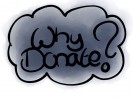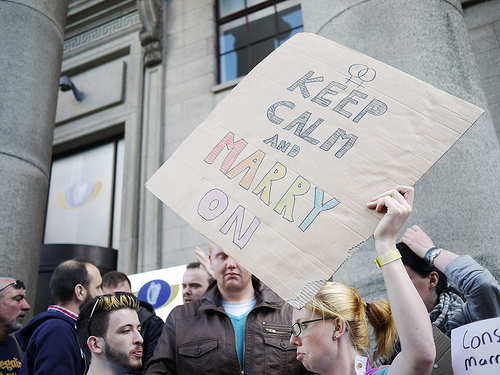Something that we have all suspected have become clear in the past couple of days: anti-marriage campaigners are obsessed with sex. Obsessed.
They are obsessed with PIV sex. They are obsessed with their imaginings of gay male sex. They’re even obsessed with the mystery of what two women could possibly do that could constitute sex.
Yesterday, a Yes Equality campaigner was asked on the radio- on the radio!- to go into details about the mechanics of sex between men. The day before, I heard a story about a public meeting being asked about how two lesbians could manage to consummate a marriage. You know, given that they (probably) haven’t a single penis between them. I’m going to take a guess and assume, by the way, that if a person can’t get their head around how two people with vulvas could have sex with each other, the existence of women with fully-functioning penises might actually blow their minds.
We could laugh at this. I mean, it’s pretty funny. Particularly considering that you’d assume that, with a functioning internet connection, the answers to questions about the mechanics of consummation aren’t exactly difficult to find. And one could also be forgiven for making some insinuations about the lives of people who can’t figure out how to satisfy a woman without a penis in the room. And as for the obsession with particular kinds of sex between men? That one is just too easy.
Okay, so it’s funny.
What has civil marriage law got to say about sex, though? Feck-all, as far as I’m concerned.
No campaigners will tell you that they are defending the family against attack and against redefinition. They say that marriage is something precious, a cornerstone of our society.
And then they reduce it to.. a penis in a vagina. That’s it. That’s all of it. Marriage, for these people, is reduced to one sex act.
Ask marriage equality advocates what it means to them. You’ll get answers based on love, commitment and dignity. About protecting their loved ones. About being included in and valued by their communities.
Is allowing people access to marriage really redefining the institution? Or is this reduction of our relationships to nothing more than the kind of sex that we’re having- that other people assume we’re having- the redefinition that’s really happening here?
Tell me again- who is attacking marriage?
Even bloggers have to pay the bills! Monthly subscriptions- no matter how small- help give me the security to devote time to this place and keep a roof over my head:






